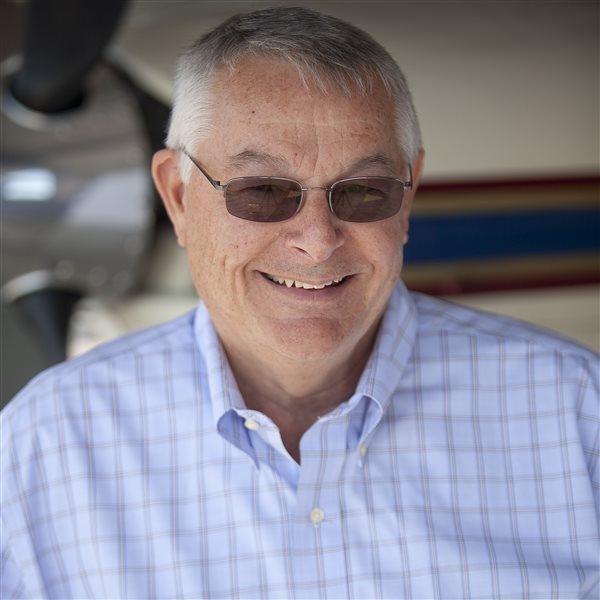
Too often the term “affordable” is applied to airplanes that would take many years of earning, as long as you live in a van down by the river. This time I really mean it; a Cessna 140/140A can be purchased for less than my Honda CRV and operated for $5,000 to $7,000 a year covering all possible expenses. Why go 90 knots? Because it is less expensive than going faster in a bigger airplane. The 140A is much different than a 140 because it has a Cessna 150 wing. A Cessna 120 looks just like the 140 without flaps. The 120/140 has a strong owners’ group with 1,100 members who fly anywhere and everywhere for annual meetings, making friends all over the country.
THE REAL WORLD
Jeff Tourt, merchandise manager for the 40-year-old International Cessna 120-140 Association, has owned his Cessna 140 since 2006. He learned to fly in a Piper J–3 Cub and transitioned to a Cessna 140. He gets 91 to 95 knots true airspeed and finds the aircraft inexpensive to operate.
“They have a semi-symmetrical wing and ground performance is not that great. If you load them to the maximum they’re not healthy on the ground getting off quick. You just gotta let them do what they are going to do,” the 1,000-hour pilot said. He averages six gallons an hour. He doesn’t covet a faster airplane. “Bigger, better, more money,” he said. “For me, just staying in general aviation at a bare minimum, it’s the biggest bang for the buck for me.”
Tourt flies 20 to 30 hours a year. He said he thinks pilots should not be afraid of tailwheel aircraft, adding that the biggest problem they might have is finding training. Even with winds (he doesn’t press bad weather) the slowest groundspeed he has seen is 67 knots. The fastest was 158 knots on a flight home to Sandwich, Illinois, from Tucson, Arizona.
Virgil Warren, president of the International Cessna 120-140 Association, also has a Cessna 140 near his Macon, Georgia, home. “When I bought it in Phoenix, and it took five days to get home, I was thinking about that. When you’re flying down I-10 the trucks are going faster than you are. That’s not the mission of this airplane. This airplane is an economical plane to fly, a very forgiving taildragger,” he said. “My airplane is the airplane that taught thousands of people to fly after World War II,” he added, noting that a tailwheel airplane really isn’t hard to fly, it’s just different. “If I wanted to go faster I would have a different airplane,” he said.
Email [email protected]
Whom to contact
International Cessna 120-140 Association, 261 Pierce Ave, Macon, Georgia, 31204; 478-335-4210 (www.cessna120-140.org); [email protected].
Vref value
Vref, an AOPA partner, lists the aircraft lumped in with a Cessna 120, converting to a Cessna 140 in 1949, and lists the 1946 Cessna 120 as $17,000. The value of a 1951 Cessna 140A is $21,000. The price assumes minimum avionics. A single GPS can increase the price by $4,000 to $8,000.
Recent advertised prices
Listed in Trade-A-Plane at the time this was written were five Cessna 140s, and all were priced from $20,000 to $28,500. Barnstormers.com had 10 priced mostly in the $20,000s with additional ads for parts.
Insurance costs
AOPA Insurance Services estimates a $25,000 Cessna 140 flown by a 100-hour (total time) pilot with a tailwheel endorsement will cost between $800 and $900 per year to insure.
How many in the fleet?
Airpac PlaneBase shows 2,092 registered Cessna 140 and 140A aircraft.
Financing
AOPA Finance estimates $230 per month for a $25,000 10-year loan at 6.5 percent with 20 percent down.
Airworthiness directives
Ongoing inspection of wiring in wings for corrosion. Couple of minor ones.
Biggest plus
Affordable for real.
Biggest minus
A bit slow.
Things to watch out for
Takeoff is slow, especially heavily loaded.
What else to consider
Cessna 170, Cessna 150/152.



